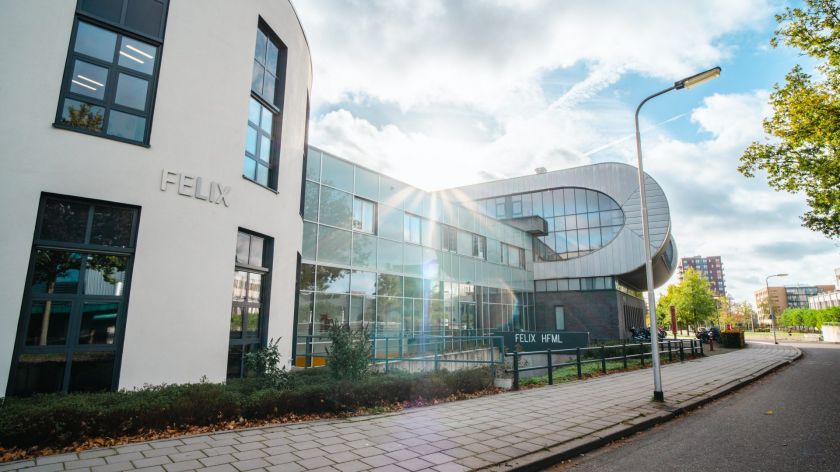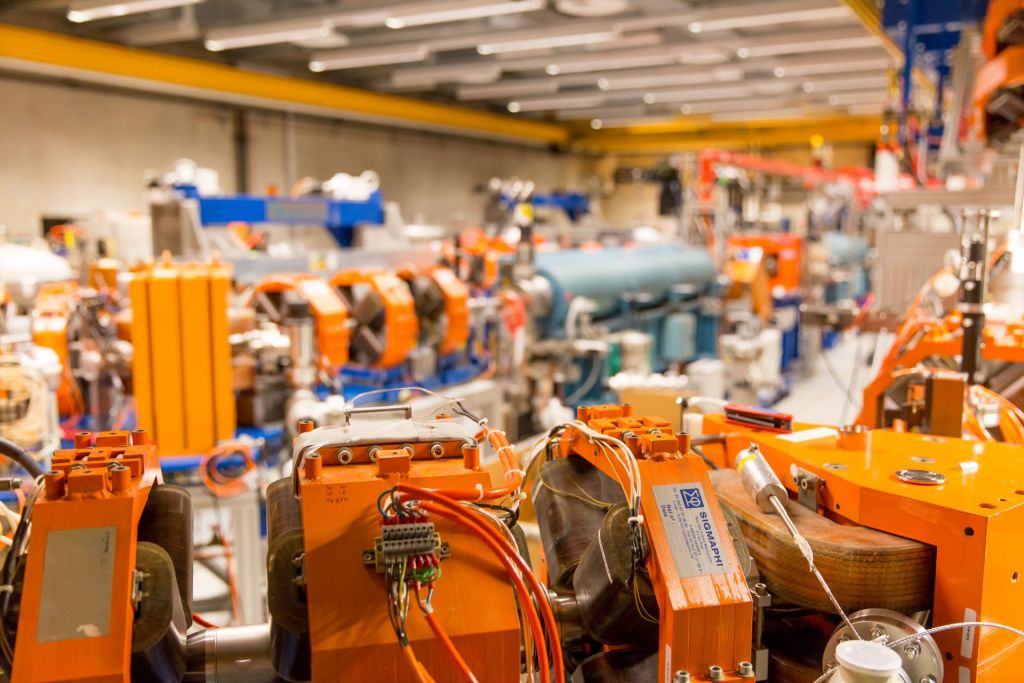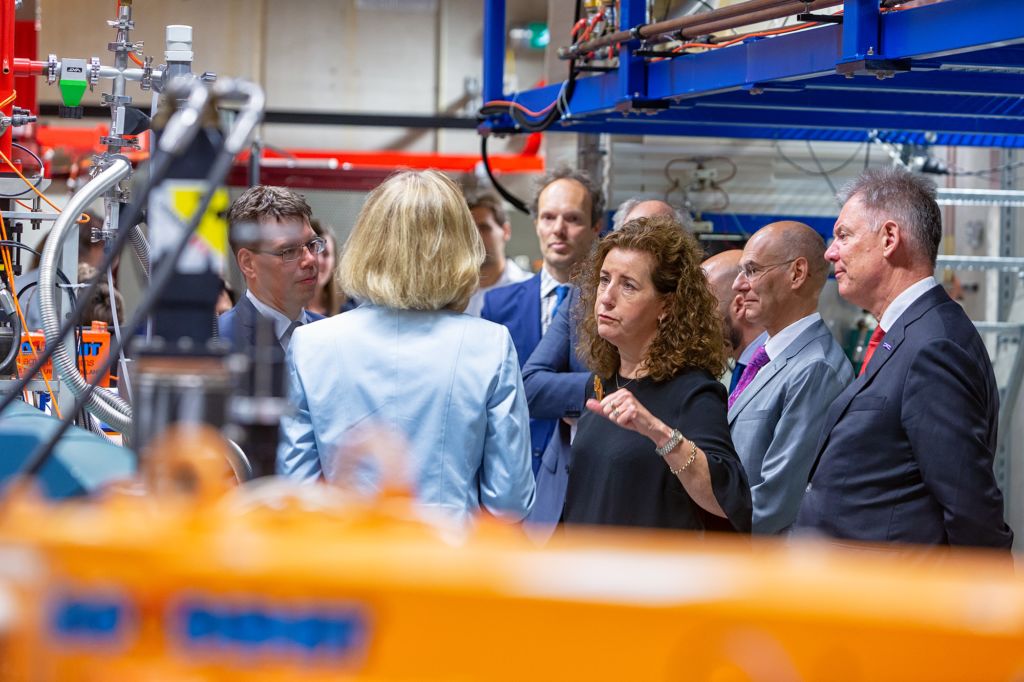Financial problems HFML-FELIX over, magnet and laser lab to become national Dutch Research Council (NWO) institute
-
 Onderzoek in HFML-FELIX droeg bij aan de Nobelprijs voor Andre Geim. Foto: Johannes Fiebig
Onderzoek in HFML-FELIX droeg bij aan de Nobelprijs voor Andre Geim. Foto: Johannes Fiebig
HFML-FELIX's financial problems are over for at least a decade. The Nijmegen magnet and laser lab is to become a national partnership between Radboud University, the Dutch Research Council (NWO), and six other universities.
Finally, in these times of severe cuts to higher education, there is a bright spot for Radboud University: the financial woes of HFML-FELIX are a thing of the past. Starting from 1 January, the laser and magnet lab will continue as a national NWO institute.
That is the outcome of a long period of negotiations between NWO and Radboud University. The new structure ensures that HFML-FELIX will receive structural funding for the next 10 years. This will be followed by an evaluation.
‘The foundation for this solution was laid last year’, says Sijbrand de Jong, Dean of the Faculty of Science. ‘We have spent the past year shaping the new NWO institute and its research programme.’
Six universities
In the new structure, NWO and Radboud University will contribute around €9 and €8 million respectively to the €23 million the lab costs per year. The remainder of the amount is to come from research and investment grants, among other sources.
Besides NWO and Radboud University, the project involves six other universities: Delft, Maastricht, Twente, Amsterdam (UvA), Leiden, and Groningen. ‘The idea is that we jointly draw up a scientific programme for the institute’, says De Jong.

The six other universities will also contribute financially, albeit far less than Radboud University. De Jong: ‘Initially just a few hundred thousand jointly a year, but in the future hopefully one million.’
New equipment
The large contribution from NWO allows HFML-FELIX to make some necessary investments, says the Dean. This will make it possible to develop new equipment, such as stronger magnets and better lasers. The Dean also hopes that ways can be found to make the lab more energy-efficient. ‘That is where we still have some catching up to do. This can go hand in hand with innovations that, in a way, are also scientifically interesting.’
The money will also make it possible to recruit some additional staff and increase the capacity of the lab, which is used not only by Dutch, but also by many international researchers.
Interim director
Since HFML-FELIX will no longer formally be an integral part of Radboud University in the new year, things are going to change for the staff. ‘The idea is to place staff with the organisation where they fit best. For academic staff, Radboud University is the most obvious choice, for support positions, NWO. But this division is not absolute.’
The Dean wishes to emphasise that salaries are as good as equivalent at NWO and Radboud University, and that no one will lose out. ‘For example, employees will retain their years of employment. These are all things we want to take care of in the new year.’
‘Thanks to his experience, Frank Linde knows how to run an NWO institute’
The two parties have agreed that the transition to the national institute will be completed within two years. It should then also be clear who will own – or continue to own – the building and its infrastructure.
However, it is already clear who will be the first employee of the brand-new NWO institute: Frank Linde will hold the position of interim director for six months starting from 1 January. ‘He was previously, among other things, director of Amsterdam’s Nikhef, where particle research is done, for ten years. So he knows how to run an NWO institute.’
Current HFML-FELIX director Britta Redlich is relocating to Hamburg, where she has been appointed Photon Science Director at DESY, a German national laboratory that conducts research on accelerator light sources, among other things.
Parliamentary questions
A year and a half ago, it was announced that HFML-FELIX was facing a million-euro deficit, because two long-term contracts with NWO had expired and new talks with the science funder had long been unfruitful. Member of the House of Representatives Lisa Westerveld asked questions in parliament about the situation.
‘NWO was initially not particularly pleased with this attention to the problem, but it did help to reach a solution,’ De Jong now says. ‘Even then-minister Robbert Dijkgraaf made efforts to bring the issue to the attention of the science funder.’

The financial deficit led to high workload among staff, as apparent from a survey by the FNV union. ‘Several attempts were made to address to workload, also under external guidance. One of the problems appeared to be the above-average job performance expectations of the staff, who wanted to continue to deliver top performance despite limited financial resources. On many fronts, resources were pushed to the limit, but we have recovered from that situation quite well.’
In conclusion, the Dean says he is pleased that HFML-FELIX no longer weighs so heavily on his faculty’s budget. ‘It is quite a relief in these times of budgetary challenges.’



